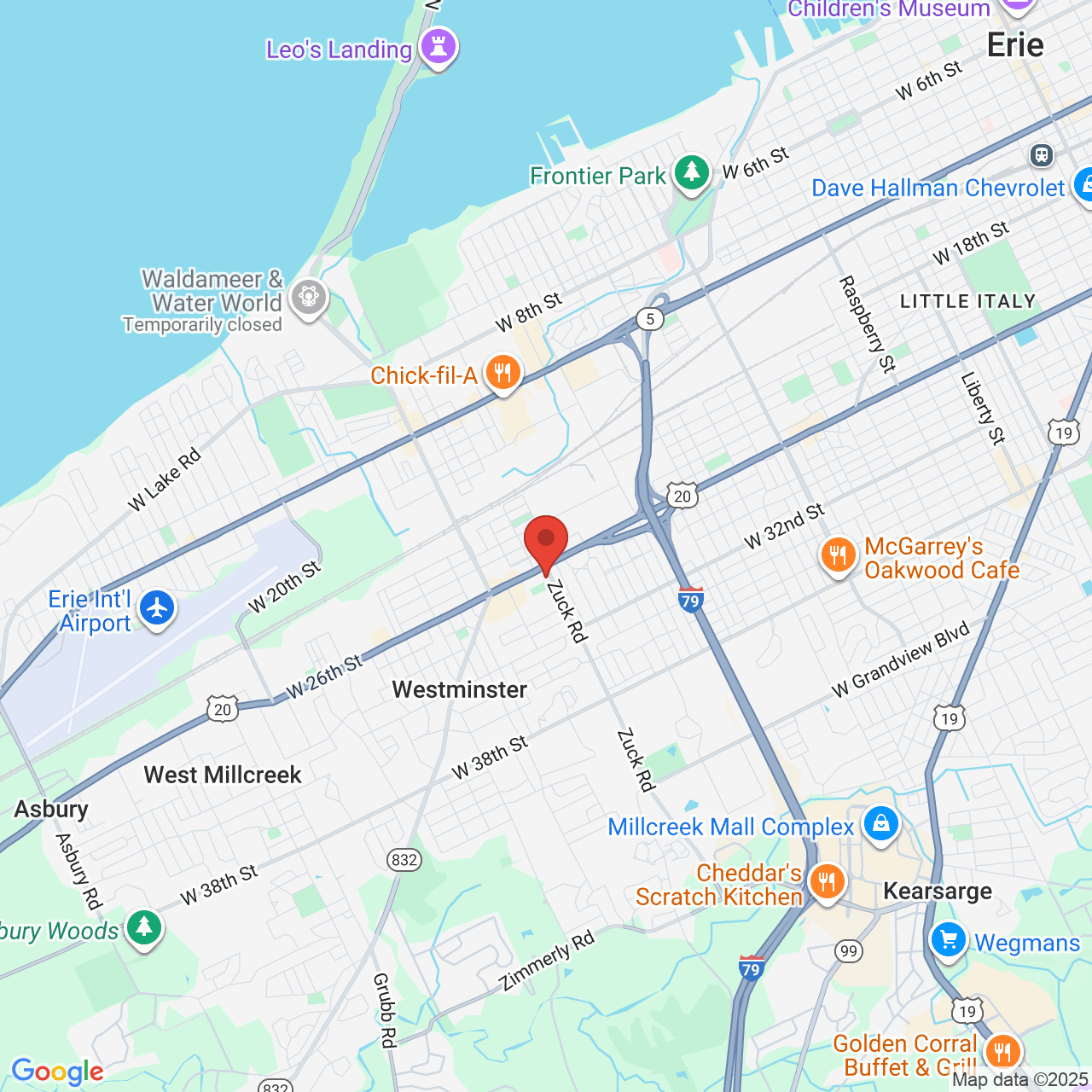Glaucoma Treatment Erie
Early Detection. Expert Care. Better Outcomes.
Fellowship-trained cornea specialist on staff
Full range treatments, including surgery
Preserving Erie’s vision since 1985
We Treat Glaucoma at Every Stage
Your doctor will tailor treatment to your needs based on what stage you are at. Glaucoma is a progressive disease and though it cannot be cured, we offer eye care that can slow or stop it. Of course, the earlier we detect glaucoma, the more vision we can save.
Glaucoma Meds
Glaucoma medication, in the form of eye drops or pills, is used to reduce the eye's intraocular pressure. For most patients, treatment starts with eye drops. While eye drops or pills won't cure glaucoma or reverse vision loss, they can keep glaucoma from affecting more of your eyesight. Depending on the medicine, you may need to use eye drops up to four times a day.


Minimally Invasive Glaucoma Surgery
In addition to standard surgical techniques to reduce eye pressure, Contemporary Ophthalmology of Erie also offers several forms of minimally invasive glaucoma surgery, commonly called MIGS. These minimally invasive procedures use microscopic equipment and tiny incisions that allow patients to avoid major surgery when appropriate. Among the advanced MIGS techniques we use are micro-incision surgeries and microscopic-sized stents (small tubes) that drain fluid from inside the eye and reduce eye pressure.
Did You Know?
An estimated 80 million people worldwide have glaucoma. Unfortunately, half the people with this eye disease don't know they have it.
Early Detection Saves Vision Have You Been Tested?
Since glaucoma symptoms often go unnoticed, it's important to have regular eye exams with a qualified doctor. The doctors at our Erie office use sophisticated diagnostic tools to identify glaucoma early on so that you can avoid debilitating vision loss. Open-angle glaucoma, the most common form of glaucoma, takes years to cause optic nerve damage but can be successfully managed when caught early.
Should you suffer from glaucoma, our board-certified eye doctors have the wide-ranging expertise needed to tailor treatment to your type of glaucoma and stage of the disease. Dr. Howard Levin and Dr. Vincent Imbrogno are board-certified ophthalmologists and Dr. Emily Washek is the only fellowship-trained cornea specialist in the area. Our optometrist Dr. Ravinder Sabherwal has special training in both diagnosis and non-surgical treatment of glaucoma.
Concerned about eye care costs? Glaucoma treatments are typically covered by major medical insurance.

“Great doctors.”
I give my many thanks and gratitude to Dr. Emily Washek for setting me up with an emergency appointment…she wasted no time and understood that it was an emergency situation, and that I needed to see somebody immediately here in Erie.
View on GoogleGreat doctors and staff. Extremely knowledgeable. Have my complete trust.
View on GoogleWhat Causes Glaucoma and How It Affects Vision
Glaucoma is a serious eye disorder that refers to a group of conditions that damage the optic nerve. Typically the optic nerve is damaged by high pressure caused by excess aqueous humor fluid inside the eye. There are various types of glaucoma, with open-angle glaucoma being the most common.
Sudden-Pressure Glaucoma Alert
Not all glaucoma happens slowly. Acute angle-closure glaucoma can occur if there is a rapid or sudden increase of pressure in the eye. This is a medical emergency. While this type of glaucoma is less common, if you have severe eye pain, headaches, nausea, halos, blurred vision, or vision changes, you should seek medical attention immediately to save your sight.
Who’s Most at Risk for Glaucoma?
Glaucoma is more likely to affect those who:
- Have a family history of glaucoma
- Have high IOP
- Are African American (for open-angle glaucoma)
- Are of East Asian ancestry (for angle-closure glaucoma)
- Are farsighted (greater risk for angle-closure glaucoma)
- Have had an eye injury or eye surgery, such as cataract surgery
- Have diabetes
- Have high blood pressure
- Are middle-aged and older. The risk of glaucoma increases as you age, especially after age 40
What Is the Best Defense Against Glaucoma?
Once glaucoma has damaged vision, it cannot be restored. Since vision loss may not become apparent until significant damage has occurred, regular eye exams are your best defense against this progressive disease. While vision loss cannot be restored, our board-certified eye doctors at Contemporary Ophthalmology of Erie have the advanced technology and expertise needed to identify and treat the disease. This can slow or stop vision loss.
Glaucoma Screening Guidelines by Age
| How Often Should I Be Screened for Glaucoma? | |
|---|---|
| Age 20-29 | Most people should have an exam at least once during this period. If you are of African descent or have a family history of glaucoma, you should be tested every three to five years. |
| Age 30-39 | Most people should undergo an eye exam at least twice during this period. People of African descent or with a family history of glaucoma should be examined every two to four years. |
| Age 40-64 | Every two to four years. |
| Age 65 or older | Every one to two years. |
“Absolutely the best!”
Contemporary Ophthalmology is absolutely the best! Anyone who has had a foreign body like a metal chip removed from their eye knows how excruciating the pain is and I greatly appreciate the knowledge and expertise of the doctors and staff and their ability and willingness to promptly treat.
View on GoogleThis is a wonderful office with the best doctors around. I would recommend anyone come here for their eye care needs!
View on Google


